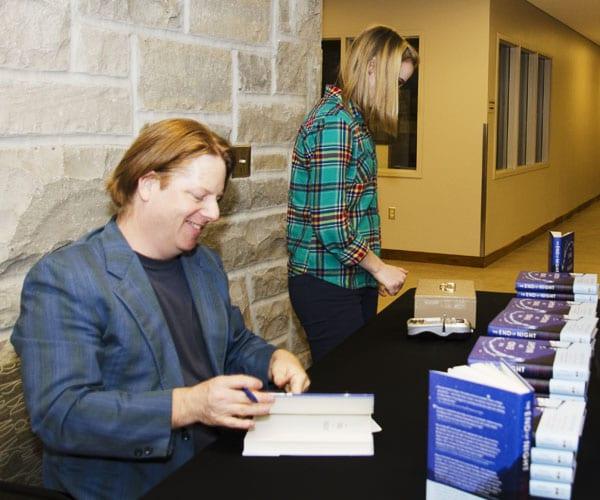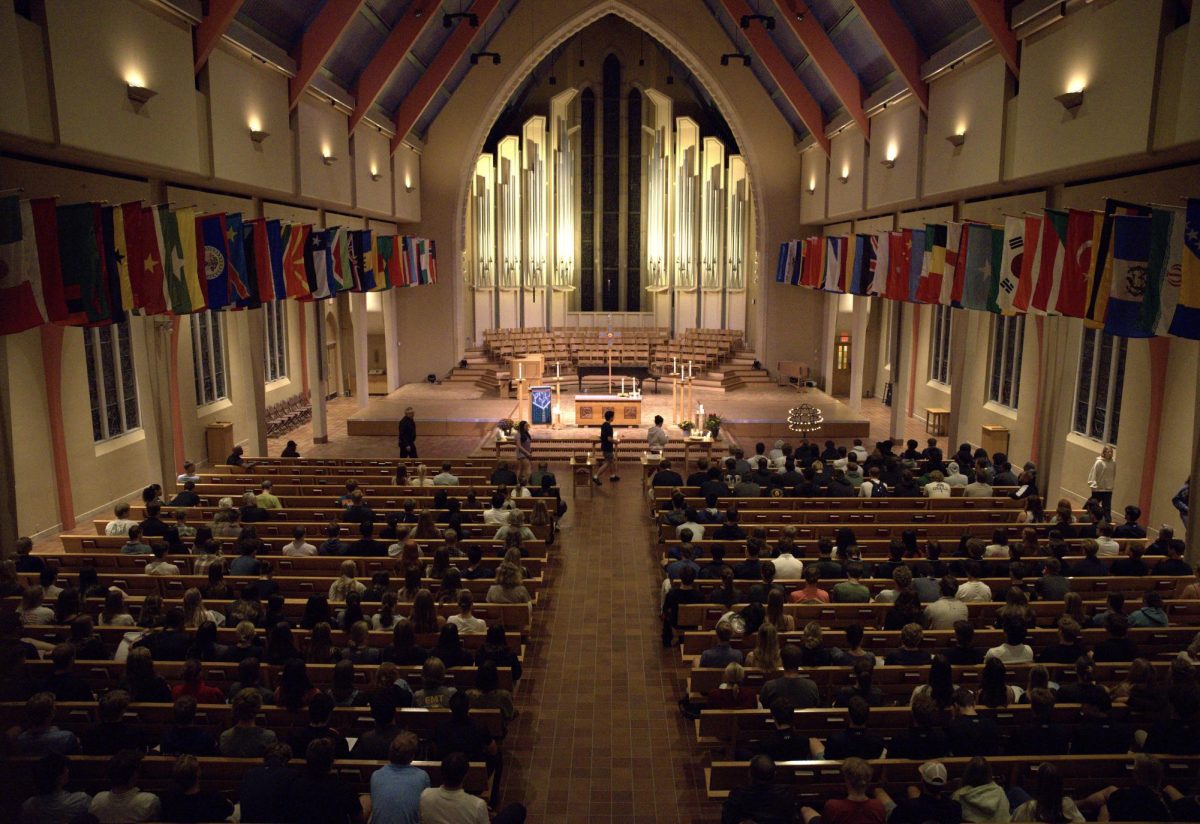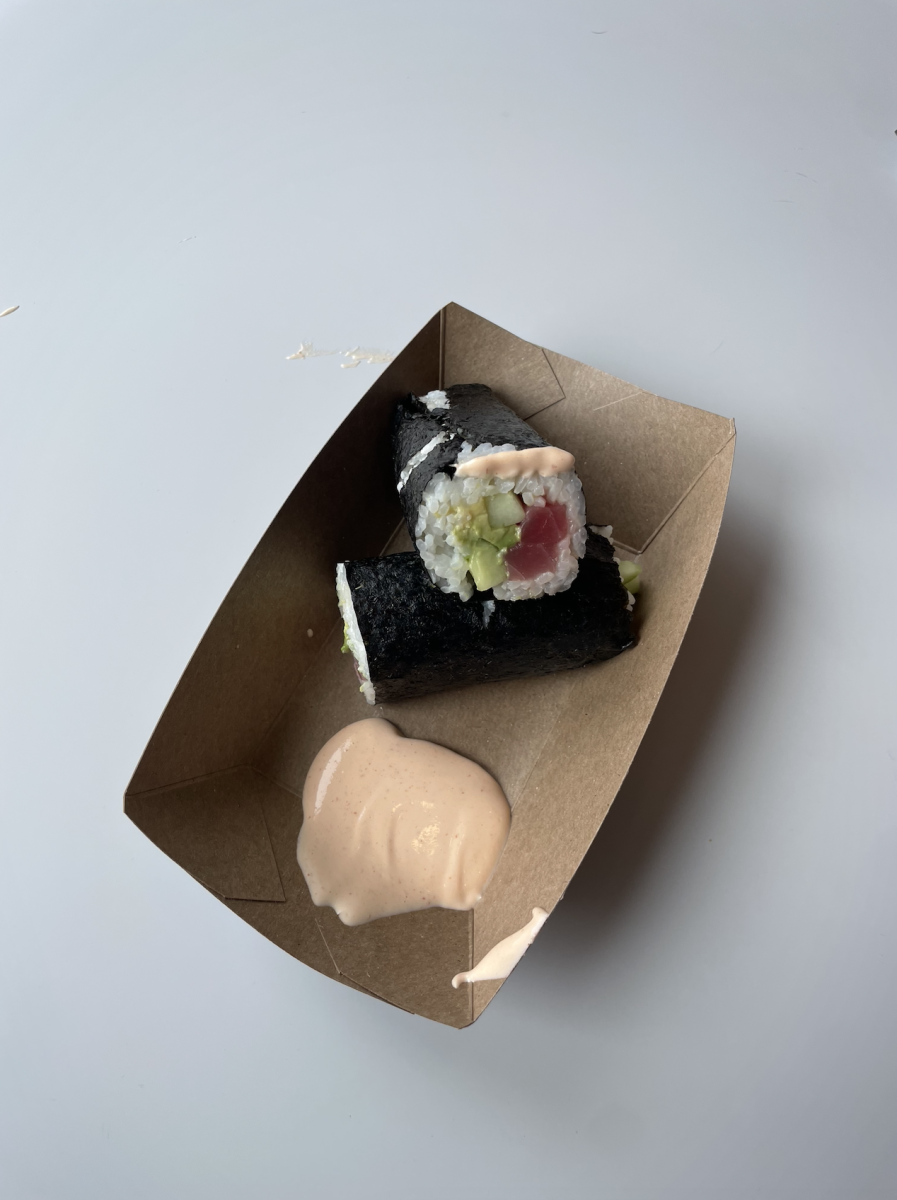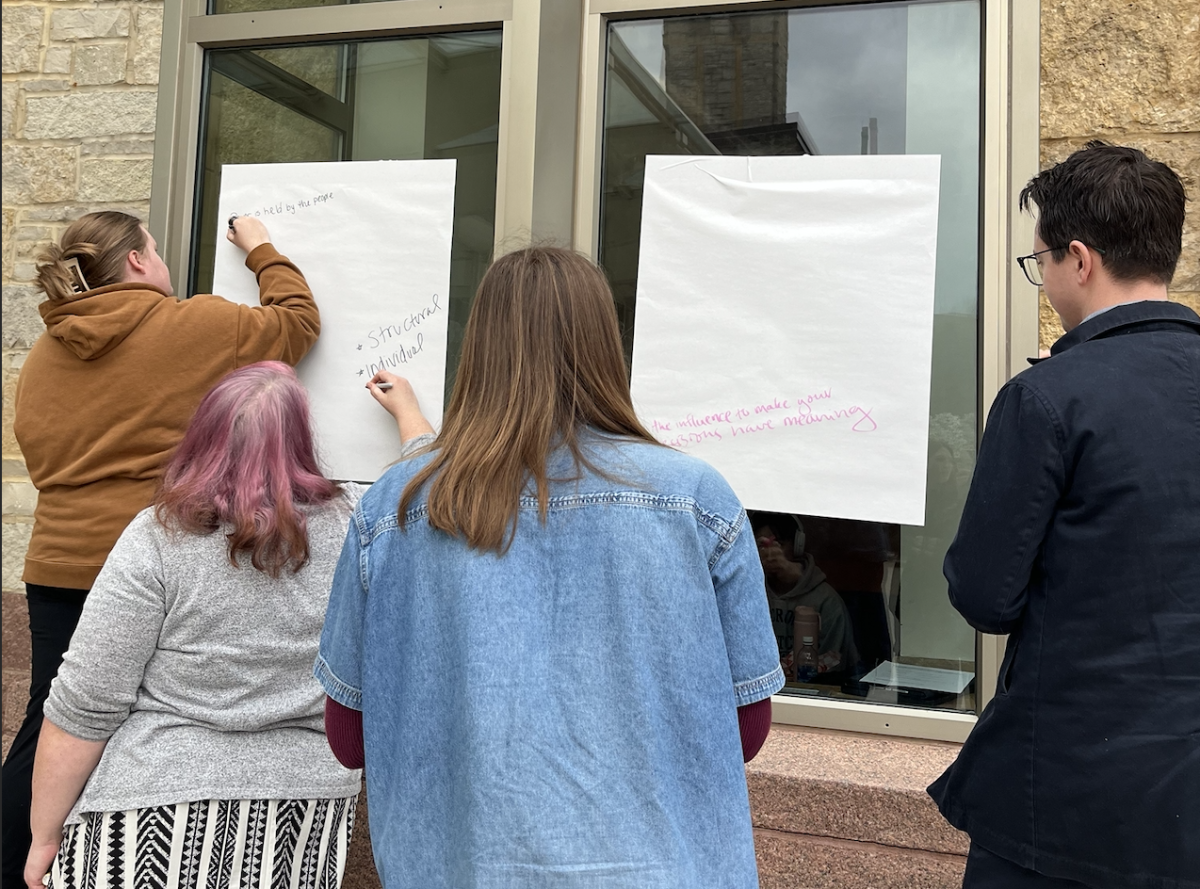On Monday, April 21, students, faculty and community members gathered to hear what it is like to “go dark.”
Paul Bogard, author of “The End of Night: Searching for Natural Darkness in an Age of Artificial Light,” spoke to a crowd in the half-filled Tomson 280 lecture hall about the cost of light pollution and the value of darkness. Bogard was invited by the English and environmental studies faculty to speak and read from his book.
Bogard began his talk with the epigraph from his book, a short poem by Wendell Berry titled “To Know the Dark,” before launching into several stories geared toward depicting the lack of natural light in our modern world.
“The problem isn’t artificial light at night,” Bogard said. “The technology is not the problem. The problem is that we overuse it. We use way more light than we need. Images of light are very beautiful, but they are also images of waste.”
Bogard went on to show examples of this overuse, including the Las Vegas strip, which he describes as the brightest pixel on a satellite photo depicting the world’s lights at night. He used a slideshow of images to give examples of different forms of light pollution including sky glow and sky glare, in which the night sky is lit by artificial lights, preventing the ability to see stars. He also explained the concept of light trespass, in which lights shine through windows into neighboring homes and buildings.
“We live in a country obsessed with property rights, but we are completely unconscious when it comes to light trespass,” Bogard said.
Other ingredients of light pollution, Bogard explained, come from common light sources like stadium lights, gas stations and billboards. These lights are often seen as safety precautions, but Bogard, using a photo example, explained that often these artificial lights make it more difficult to see the dangers that may lurk beyond a bright beam of light.
According to Bogard, artificial lights lead to a number of issues outside of light pollution, ranging from negative effects on human health to a number of environmental issues.
“All the electric light that we’re exposed to at night seems to have a negative effect on our physical health, not to mention our spiritual and mentalhealth,” Bogard said. “It’s disrupting our sleep, confusing our circadian rhythms and impeding production of the hormone melatonin in our bodies, which has been correlated with an increased risk of breast and prostate cancer.”
“If you hear anything I say tonight, at least sleep in the dark,” he continued. “Our bodies did not evolve to be exposed to artificial light at night.”
Bogard expressed his desire to illuminate various environmental issues associated with the increase of artificial light in our world. Using baby sea turtles as an example of the way this light interferes with our natural ecology, he explained that they had evolved to move upon hatching toward the brightest light source, the moon, which led them into the sea. Now, however, more and more are beginning to move toward the lights of condos and streetlights, which greatly lessens their chances of survival.
Bogard attributed his passion for night to growing up with a cabin in northern Minnesota.
“I’ve just always loved nighttime,” Bogard said. “I think it’s a magical time that’s really important to being human. We have taken what was once one of the most common human experiences, walking out your door and coming face to face with the universe, and made it into a rare experience. What is the cost of this, what does it rob us of?”
Bogard finished his lecture with a brief reading from his book before opening the remaining time up for questions from the audience. Questions ranged from the spiritual effects of losing natural darkness to what we can do to help reduce the negative effects of artificial lights.
“It’s hard; we’re working against a lack of awareness of the beauty of darkness, but I remain optimistic because we’re just hoping to make people aware,” Bogard said.
Audience members applauded Bogard after nearly ten minutes of questions and exited the auditorium, where they could purchase “The End of Night.”
“I think Bogard presented an engaging talk that was well-balanced between reading and discussion,” said introductory speaker Johnna Purchase ’14, vice president of English honor society Sigma Tau Delta. “Not only did he present a compelling case for the environmental need to seriously reduce light pollution, but Bogard also convincingly demonstrated the value in addressing these and other environmental issues through artistic mediums like creative nonfiction.”
“Paul Bogard is doing something that’s so important in our society right now,” audience member Nora Flynn ’14 said. “He is bridging the gap between scientists and nonscientists. At the same time, he is able to entertain both types of people.”
Photo Credit: ANDREW WILDER/MANITOU MESSENGER



